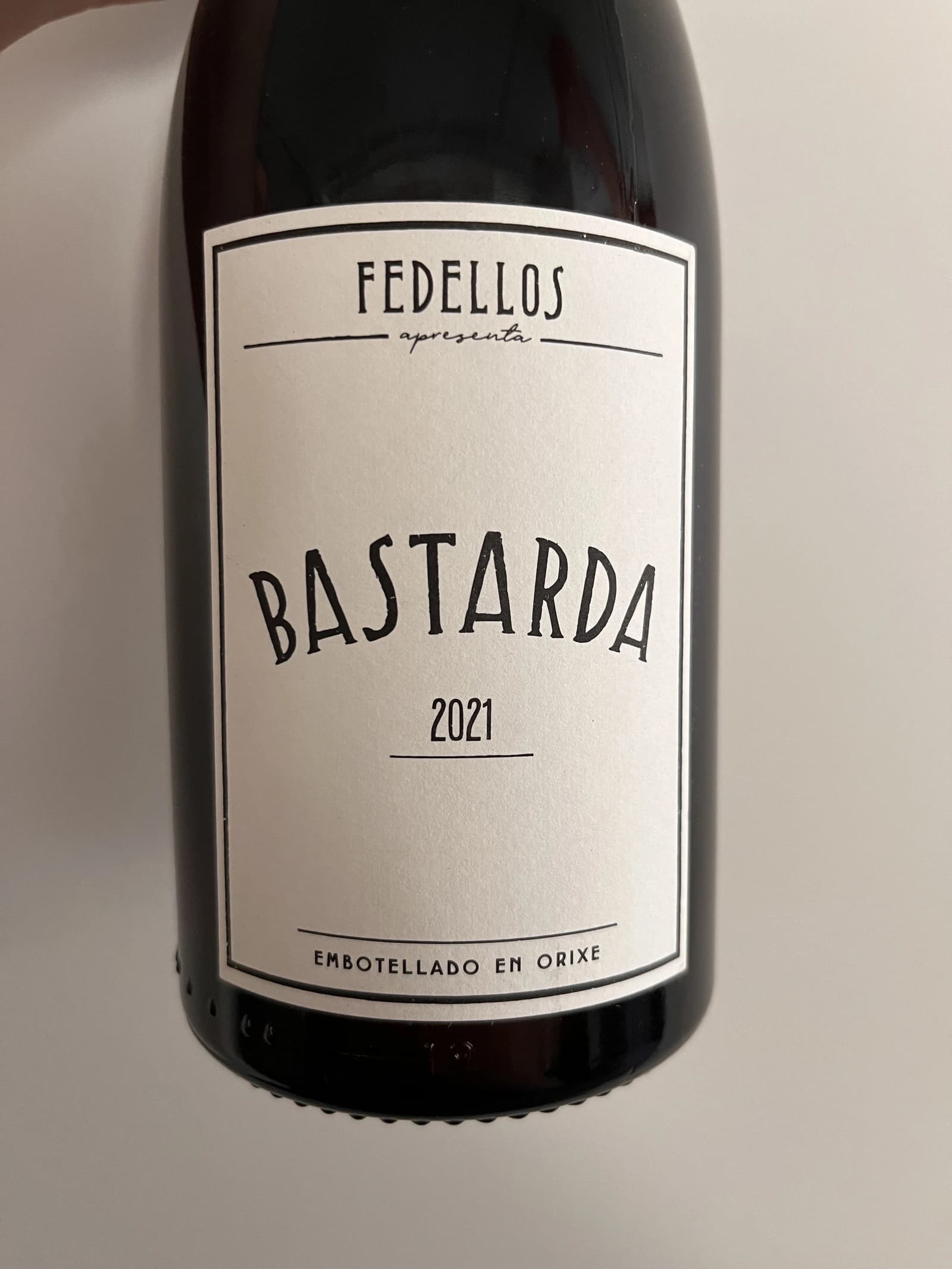Fedellos do Couto Bastarda 2021
- Region
- Spain » Vino de Mesa
- Type
- red still, dry
- Producer
- Vintage
- 2021
- Grapes
- Bastardo
- Alcohol
- 12
- Volume
- 750 mL
- Cellar
- 1 bottles

Ratings
Reflecting on how wines evolve from their release is truly magical. It's a bittersweet reality, though, as some wines are so delightful they barely last a year. I remember vividly the day we opened Bastarda '21; it was rebellious and a bit angry. Now, it retains traces of that character but has developed a more mature charm.
The wine offers a bouquet of cornel, barberry candy, flowers, blood, and earthy notes. It's juicy but no longer spiky, with a medium-light body. Initially, there's some VA, but a few swirls transform it into candy! It's easy-going and sophisticated, with delicate tannins, good acidity, and a delicious aftertaste.
In my opinion, it still doesn't quite match up to the '17, but it's heading in a direction I appreciate and enjoy.
Since we have the new releases I can put aside the last bottle of 2017 vintage I have and enjoy the development of this beauty. Cornel, barberry, flowers, blood, herbs and earth. Juicy, fresh and medium-light body. Obviously, still too young but it already shows some sophistication and character. Has potential. Will taste it again in a more calm environment (and not as the 14th wine of the day).
About Producer
There are few viticultural regions as dramatic, wild, and diverse as Ribeira Sacra. Being a boundary between the cool, rainy Atlantic coast and Spain's hot, dry interior, Ribeira Sacra enjoys the best and the worst of the two domains. The main threats to viticulture are the storms that blow in from the Atlantic, bringing plenty of rain and wind; and morning fogs. A paradise for fungus. And yet people grow vines and make wines here. Some locals even practice organic and biodynamic farming. And that's truly heroic.
Ribeira Sacra is currently one of the most talked-about places in the wine world, not only for its scenery but for affordable, refreshing, and complex wines made from indigenous varieties like Mencía (a sleeker expression than in Bierzo), Mourantón, Garnacha Tintorera (widely planted after phylloxera), Caño, Bastardo (a.k.a. Trousseau), Grao Negro, Sousón, Godello, Doña Blanca, Palomino, and other grapes. Not the most popular and known bunch, isn't it?
Luis Taboada comes from an old family that owned Pazo do Couto, an ancient manor dating to the 12th century that produced a wide array of agricultural products. Recognizing the value of his ancient, north- and east-facing vineyards, he teamed up with viticulturist Pablo Soldavini, a proponent of organic farming and winemakers Curro Bareño and Jesús Olivares to found Fedellos do Couto in 2011. According to PanLex, Fedellos roughly translates as 'brats'. So the name of the winery is - Brats from Couto (estate).
Curro Bareño and Jesús Olivares are also known for Ca' di Mat and Peixes. After parting (when?) their ways with Luis Taboada leaving DO Ribeira Sacra (deemed atypical!), they decided to merge Fedellos do Couto with Peixes to become a single project - Fedellos.